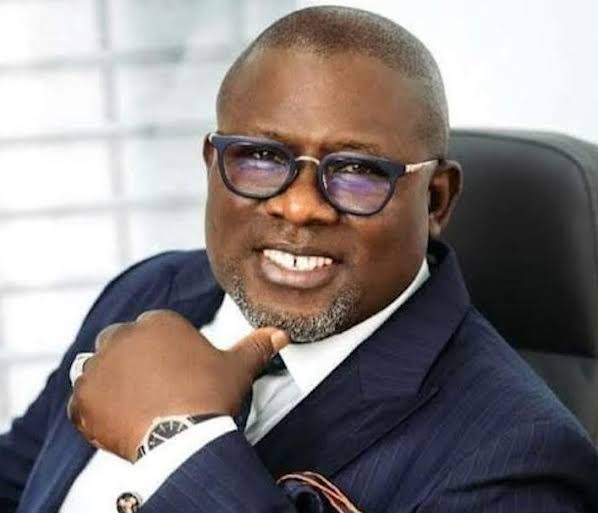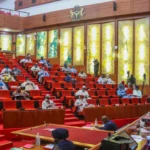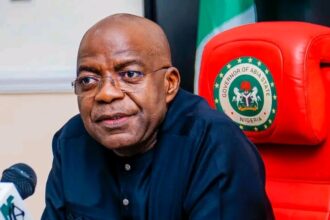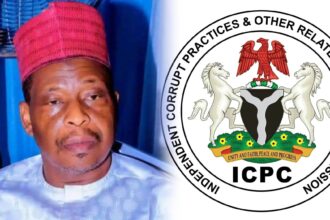
Governor Sheriff Oborevwori has scored another bullseye with his latest rollout of legacy projects in Delta State. This week’s approval by the State Executive Council of N230b worth of projects spanning road infrastructure, flood management, and healthcare reflects the Governor’s commitment to delivering big and impactful projects across the state. It is reminiscent of what happened in February this year when the governor unveiled massive infrastructural projects worth over N275b. It is a style marked by ambition, audacity of purpose, and raw chutzpah.
Brick by brick, the governor is advancing the prospects of a resounding victory for the All Progressives Congress (APC) in Delta state and by extension, an assured sweeping victory for President Bola Tinubu in the 2027 presidential election. Delta occupies a strategic place in the sustenance of the nation’s economy. It is currently the highest producer of crude oil and by implication the biggest contributor to the national purse among the oil-bearing states. This did not happen by accident but by intentional leadership of Oborevwori, a leadership that has consistently prioritised development over politics. Surely, Oborevwori’s nimble-footed leadership is making President Tinubu’s Renewed Hope agenda a reality, rather than a mirage.
The highlights of the latest unveiling are the design and construction of a flyover at Uromi Junction in Agbor, Ika South Local Government Area, at a cost of ₦59.7 billion, and the design and construction of another flyover along the Ughelli/Patani (East-West) Highway at Otovwodo Junction, Ughelli, for ₦39.3 billion. This brings to five, the number of flyovers that the administration is constructing, the other three being at the Warri/Effurun axis of the state.
In less than two-and-half years of his stellar administration, Governor Oborevwori has proved that governance is not about noise making or grandstanding. It is about vision, focus, strategic planning, prudent management, and stringent execution. Governor Oborevwori may not be a loud person, but his various flagship projects are screaming loud from all corners of the state. This is a leader guided by a sense of history, inspired by passion for excellence, and driven by unflagging commitment to leaving a legacy of good governance. You will not be blamed if you think that Oborevwori has been in office for six years or more. Yet he has only been in office for two years and two months, and, in this brief period, has accomplished what took many governors two tenures to accomplish. Travelling from Asaba to Warri is a now a breezy seventy to ninety minutes journey, far from the three-hour ordeal it was just a few months ago, thanks to the speedy completion of the Ughelli-Asaba Dual Carriageway by the Oborevwori administration.
Barring any unforeseen circumstances, these new flagship projects and other ongoing road projects, including the Trans Warri-Ode-Itsekiri Bridges and Access Roads Phase 1; Orere Bridge with Access and Spur in Orere Town, Ughelli South LGA, and Ayakoromo Bridge across River Forcados at Ayakoromo, Burutu LGA, are expected to be delivered on schedule. This is because under Oborevwori the problem of owing contractors in the state has become a thing of the past. With the payment of 40% mobilisation, no contractor has any excuse to delay or abandon project sites. Final payment is made immediately the certificates of completion are issued. Fiscal responsibility has been the hallmark of the Oborevwori administration, and a key factor in the successful implementation and execution of projects across board.
The administration’s continuous investment in road and building infrastructure is a boost to the retail economy as it helps to create thousands of direct and indirect jobs, enhance individual productivity, and stimulate the growth of Micro, Small and Medium Enterprises (MSMEs). The informal sector stands to reap handsomely from the operations of several construction companies across the state. It is an economic reality that those who benefit most from infrastructure development are the poor through employment and increased demand for the services of the informal sector.
Equally of weighty significance is the administration’s bold move in the energy sector, which began with the passage of the Delta State Electricity Power Sector Law, 2024. The law provides the legal framework for investment in power generation, transmission, and distribution in the state. As the Governor noted in his State of the State Address to commemorate his administration’s second year anniversary, “this law holds bright prospects for improving power generation in the state, with all the implications this has for rapid industrialisation, as well as the operational efficiency of small businesses and the informal sector.”
At the last EXCO meeting, the government has now followed up this law with the adoption of a decentralised mini-grid model and the establishment of new regulatory bodies to drive a sustainable energy sector. The new model of the state government is entirely private-sector driven and underscores the Governor Oborevwori’s commitment to government efficiency, while providing the enabling environment for investment and innovation to thrive. Under the new mini-grid model, private sector operators will generate, distribute, and supply end-t0-end electricity in various locations across the state, an arrangement that will ensure stable and reliable power.
Elaborating on the novel scheme, Economic Planning Commissioner, Sunny Ekedayen explained that “with the mini-grid approach, if an outage occurs in one part of the state. It won’t affect other areas. Each operator is responsible for generation, distribution, and supply within their designated zones, which enhances resilience and reliability.” Noting that “only a few states have dared to venture this far,” the Commissioner added: “we are determined to deliver not just electricity, but a system that works, one that creates jobs, supports industry, and improves the quality of life for our people.” Also approved at the EXCO was the establishment of Delta State Electricity Commission to regulate the power sector, and Rural Electricity Agency, which will focus on delivering electricity to under-served rural communities.
Given the strategic importance of electricity to the economy, this bold initiative by the administration will no doubt drive economic growth, decrease inequality, promote economic inclusivity, and improve the living conditions of people in our communities. Clearly, the Oborevwori administration is blazing new trails in all aspects of socio-economic development. The Governor is making good his promise to give our people meaningful development and usher in reforms that will keep Delta State in the forefront of the Nigerian Federation.
*Ekwugum is Manager, Communications, Government House, Asaba.












